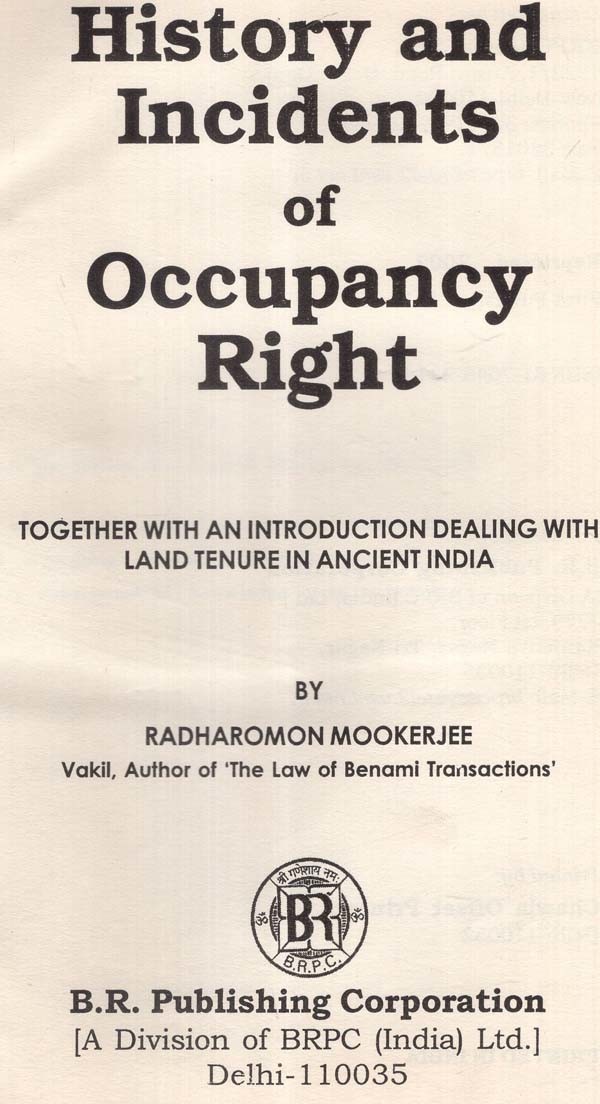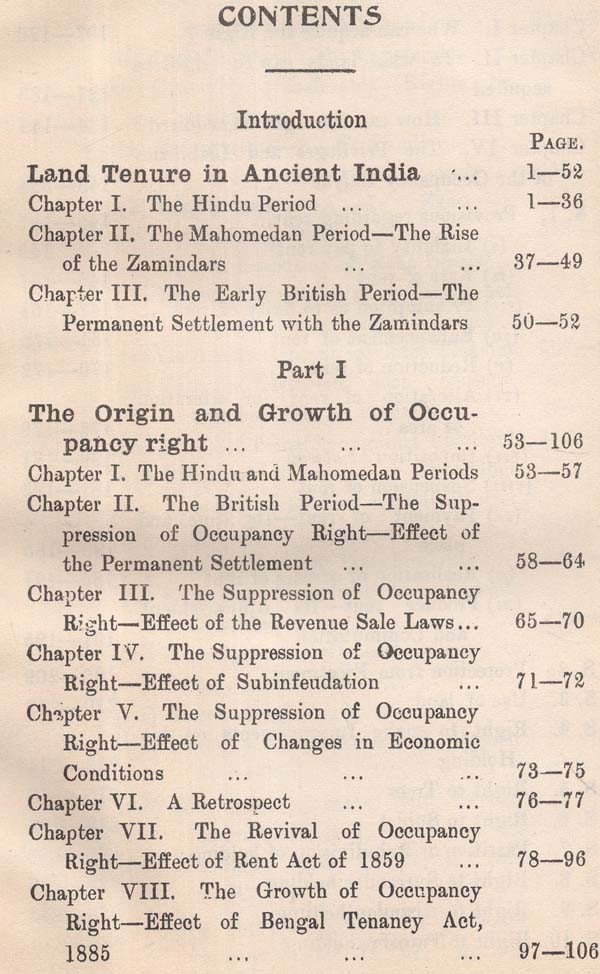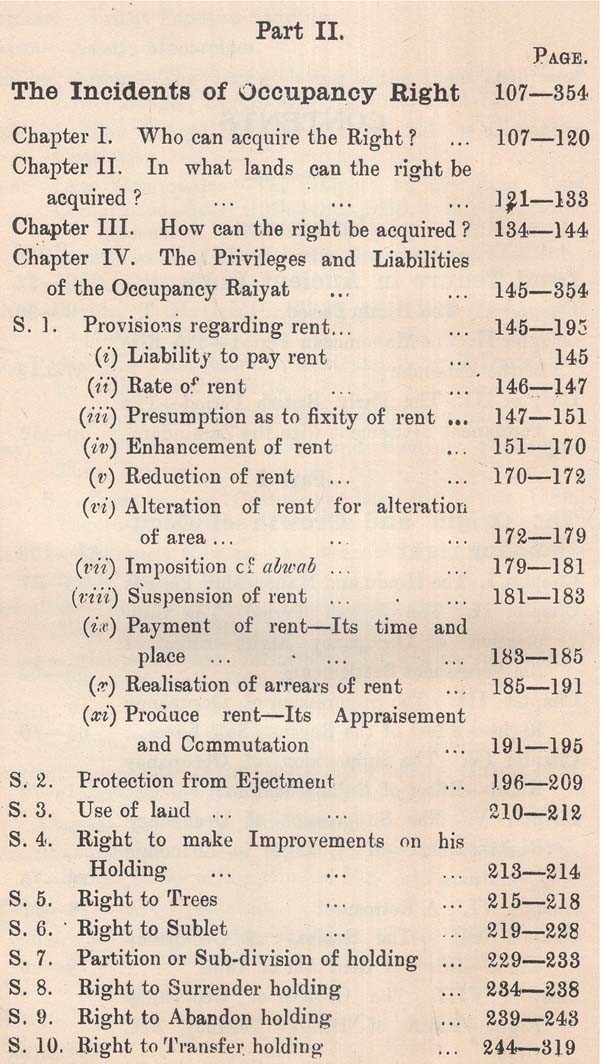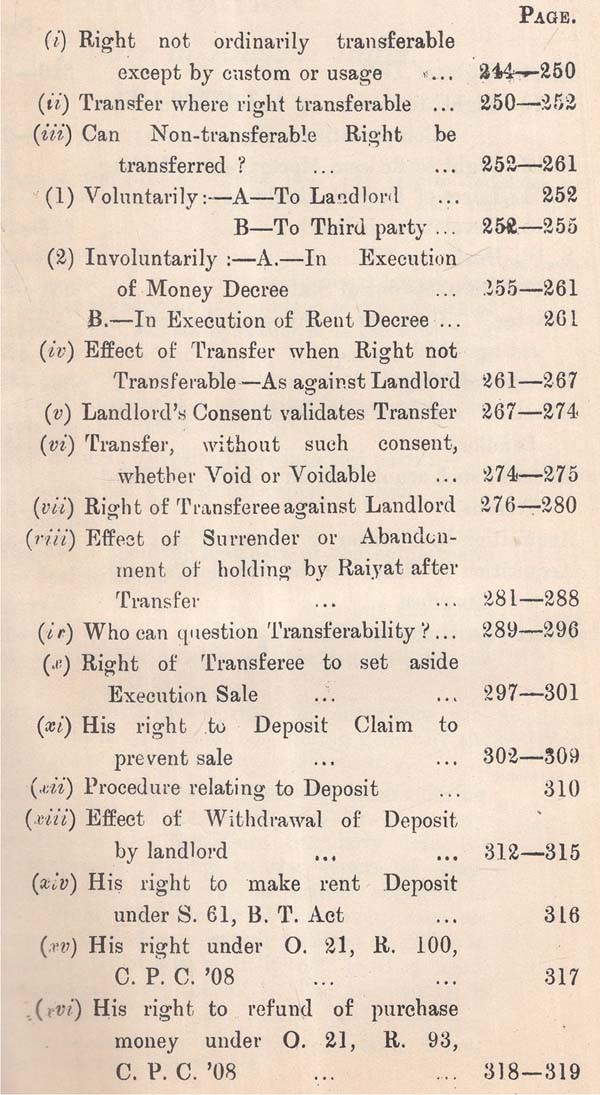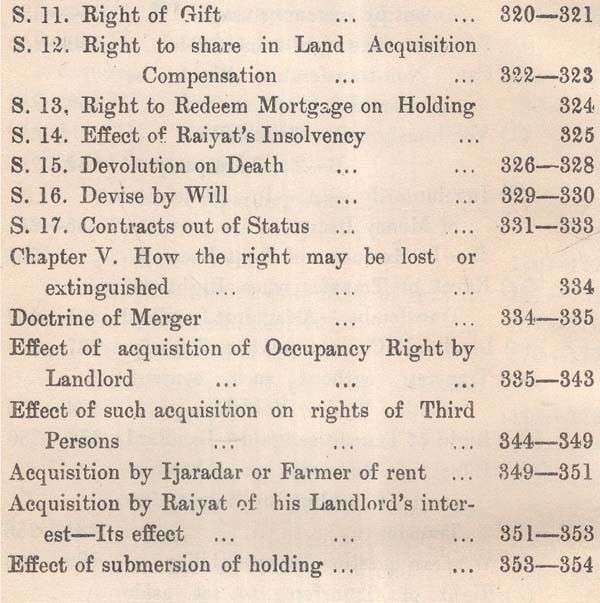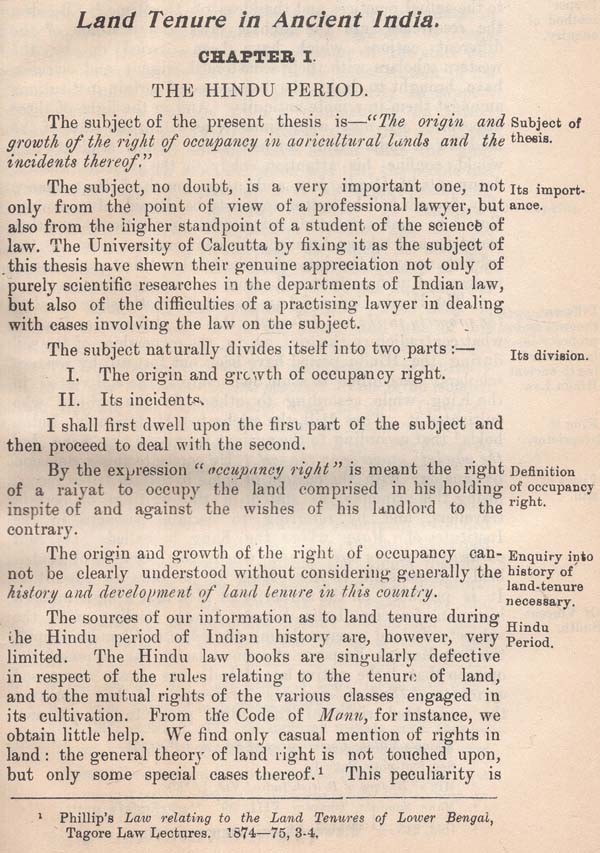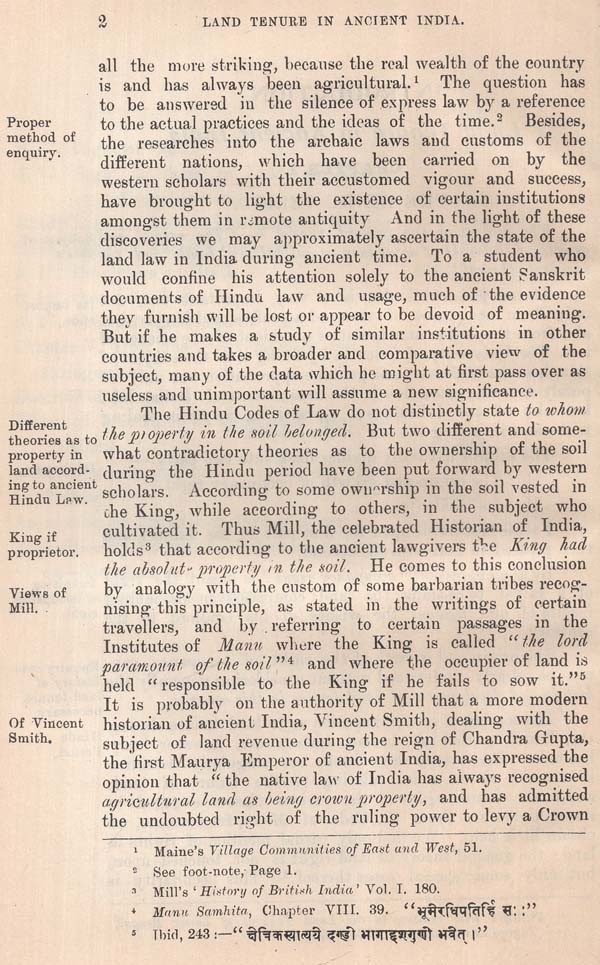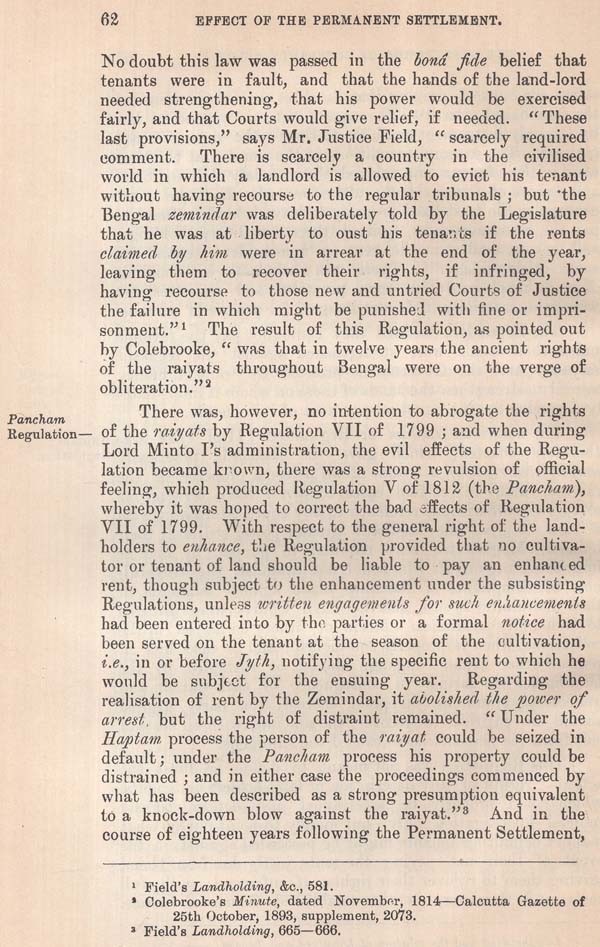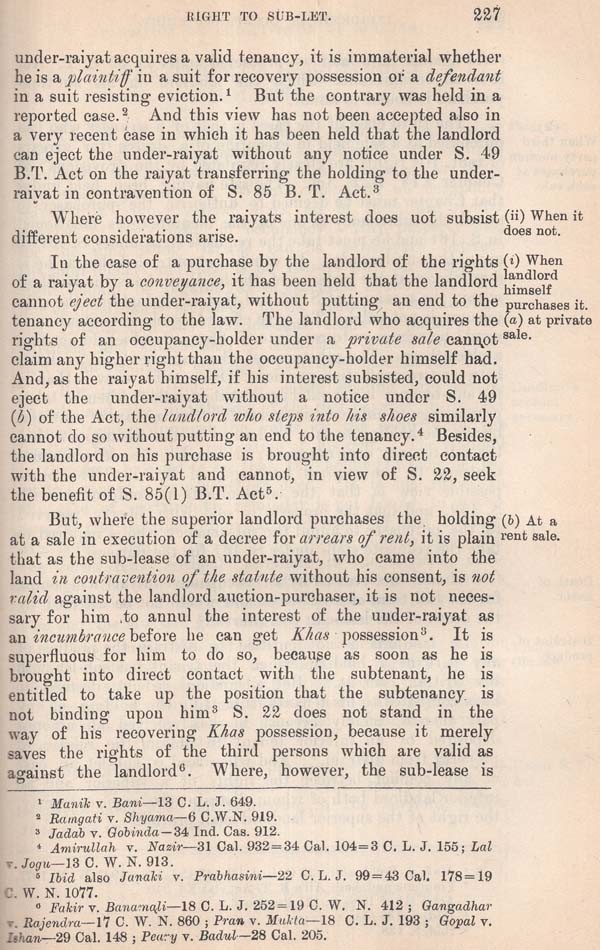
History and Incidents of Occupancy Right- Together with-an Introduction Dealing with Land Tenure in Ancient India (An Old and Rare Book)
Book Specification
| Item Code: | AZE562 |
| Author: | Radha Raman Mukherjee |
| Publisher: | B.R. PUBLISHING CORPORATION |
| Language: | ENGLISH |
| Edition: | 2002 |
| ISBN: | 8176462845 |
| Pages: | 430 |
| Cover: | HARDCOVER |
| Other Details | 9.00x6.00 |
| Weight | 560 gm |
Book Description
The book deals thoroughly with protective guarantees offered by Act X of 1859. The new legislation unequivocally conferred the right of occupancy on the cultivator and clearly provided against his eviction from the piece of land he had held for a continuous period of 12 years.
The author recalls here that though the new dispensation did provide the much-needed succour to the hard-hit ryots and the tenants-at will, it certainly suffered from glaring inadequacies and failed to anticipate the abuse into which some of its loopholes could result. This was later taken care of by another legislation known as the Bengal Tenancy Act of 1885.
It is indeed a refreshing analysis of the several stages that the 'Occupancy Right' had to negotiate till it was finally validated by the British Govt. The incidents of the Right have also been imaginatively discussed in the book.
In the Introduction I have discussel in a general way the subject of Ind Tenure in ancient Iulia. In the portion of the book dealing with the Incidents of Occupancy Right, I have traversed practically most of the important and relevant provisions of the Bengal Tenancy Act, incorporated the most recent leading cases on the subject, and indicated their basic principles in a way which, I venture to think, has not been done in any of the annotated editions of the Act.
My thanks are due to Babu Pankajkumar Gupta, B.L.. Pleader, Berhampore, for his kindly taking the trouble of preparing the Subject Index.
incidents. origin and growth occupancy right, I have had the advantage many learned authors who made laborious minute researches into the nature of landed rights this country. attached hereto by exhaustive, of the have consulted and stated fully in footnotes the sources from which particular information derived. While nekn acknowledge them my indebtedness for the informations they have, my independent collected materials ancient Sanskrit the history the country during Mahomedan and Government Reports Minutes, and recorded my sonal observations thereon. research has been conducted. independently without advice from or collaboration others.
The portions the thesis which claim original indicated below. authority that the occupancy right is creation Act of 1859. shew this perusal of our Sanskrit Sastras and also record the Mahomedan rule would convince one that proprietary right the soil always belonged the cultivator and that the King only entitled to a share and never regarded its proprietor. And as proprietary right carries with right of possession, can little doudt that the cultivators in ancient times also the right occupy the rise a class landlords the King and the village community not disturb those cultivators their occupation of the In those days state of society when there was plenty of unoccupied land and population sparse, the competition consequently was amongst tenants land, but amongst.
A tem
then proceed to deal with the second. By the expression "occupancy right" is meant the right Definition of a raid to occupy the land comprised in his holding of occupancy inspite of and against the wishes of his landlord to the right contrary. The origin and growth of the right of occupancy can- Enquiry into not be clearly understood without considering generally the history and development of land tenure in this country. history of land-tenure.
The sources of our information as to land tenure during necessary. Hindu the Hindu period of Indian history are, however, very Period. limited. The Hindu law books are singularly defective in respect of the rules relating to the tenure of land, and to the mutual rights of the various classes engaged in its cultivation.
**Contents and Sample Pages**
